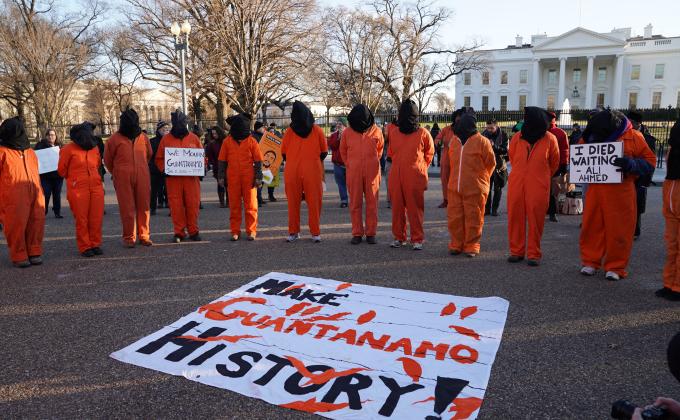On Tuesday 13 December 2011, 19:00 - 22:00, ICCT hosted the Seminar "Terrorists on Trial: The Case of Zarema Muzhakhtoyeva" at Campus The Hague Location Stichthage, 13th Floor. This was the second meeting in a series of seminars focusing on the performative and communicative aspects of terrorists trials and the different actors involved.
Chechen terrorism recruit Zarema Muzhakhtoyeva, whose father and husband died during the Chechen Wars, was arrested at the age of 22 in 2003. She was dispatched on a suicide mission but refused to blow herself up in a restaurant in central Moscow on July 9. Instead, she handed herself over to the authorities. Nevertheless, Muzhakhtoyeva was sentenced to 20 years imprisonment for the death of a Federal Security Service (FSB) agent who was killed during the dismantling of Zarema’s rucksack-bomb. The trial against Zarema attracted global attention, since it was the first time that a female suicide terrorist was apprehended alive.
This seminar is part of the ICCT "Terrorists on Trial Seminar Series", which focuses on the performative and communicative aspects of a terrorist trial. The Series builds upon the earlier ICCT Expert Meeting "Terrorism Trials as Theatre" and the NIAS Research Theme Group "Terrorists on Trial. The Court Room as a Stage in the Struggle for Publicity, Public Support and Legitimacy". In the courtroom, it is judicially determined whether an act of protest, resistance, intimidation or violence amounts to ‘terrorism’. Such verdicts reverberate in society; they have an impact on terrorists and their sympathisers and shape or break public support for government measures against terrorism. In this series, we will analyse a number of terrorism trials through the eyes of the actors or stakeholders in the court case: the prosecution, lawyers, victims, media, etc. By analysing the behaviour of terrorists in such trials and the role of all other parties involved, a fresh look may be taken at their judicial, political and social impact.
The seminar was chaired and introduced by Dr. Beatrice de Graaf (ICCT Research Fellow), who initiated the abovementioned NIAS working group. It commenced with an overview of the situation in Chechnya and the place of terrorism within this society by Mr. Hubert Smeets (Journalist NRC Handelsblad) who provided and excellent background on the topic. He described the troubled history that Russia and Chechnya share and how, after over a decade of war between the two countries, suicide bombing became prominent. He argued that the history between the two countries would certainly have impacted Zarema.
Prof. Dr. De Graaf followed Mr. Smeets and described the trial from a more social-scientific perspective. She noted how in all trials every actor is seeking to convince the “audience” of their own narrative – and the narrative of justice. De Graaf also noted how this particular trial had historical associations with Stalin’s show trials. She argued that Stalin, of course, was not interested in pursuing justice but to ‘educate’ his population through the use of these trials. Stalin’s show trials were designed for theatrical purposes to demonstrate the might of the state. With the Zarema case there was intense media attention for this young attractive suicide bomber. De Graaf argued that the prosecution came up with a highly performative strategy to offset Zarema’s appeal: painting her as a bad mother among other things to deter public sympathy.
Ms. Natalja Evlapova (Zarema Muzhakhtoyeva’s lawyer and a specialist on the Chechen question) described her role in the trial as Zarema’s lawyer. She said that Zarema’s case was heard very quickly and at a time when suicide bombings were still frequent. They decided to opt for trial by jury but Ms. Evlapova felt that the presiding judge was not impartial. She also noted how the prosecution would show videos of other suicide bombings in an attempt to win over the jury to “their side”.
The seminar ended with a Q&A discussion which debated the various performative and communicative aspects of this interesting trial.





